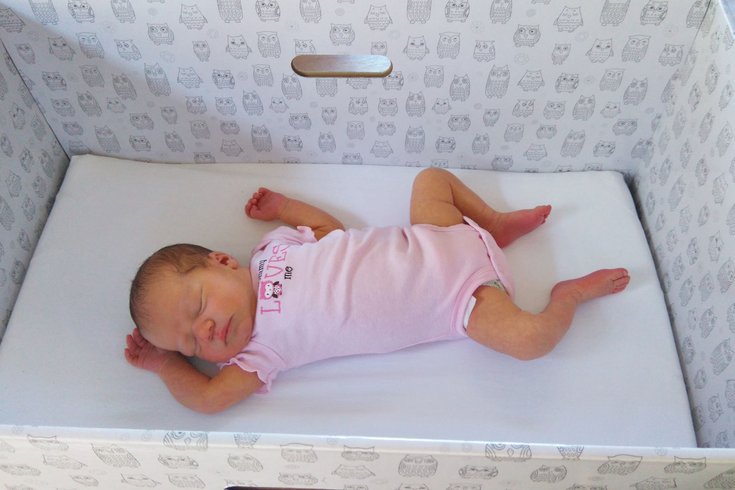
April 12, 2017
 The Baby Box Company/Facebook
The Baby Box Company/Facebook
The Finnish Baby Box tradition has spread to Philadelphia and now will begin in New Jersey.
Earlier this year, New Jersey became the first state to offer all new parents baby boxes, or cardboard boxes filled with essential items that double as small beds for the infant. The move was heralded by many health experts, but one doctor isn't so sure it will pay dividends.
Alabama and Ohio soon followed New Jersey's lead, with the hopes of reducing infant mortality rates. The practice of distributing the boxes to parents originated 80 years ago in Finland, where that rate is lowest in the world.
States are hoping by providing these boxes, they're giving a low-cost, preventive tactic to help parents — especially those with low income — avoid accidental deaths, especially those that occur during sleep. Dr. Eric Eichenwald from the Children's Hospital of Philadelphia told The Huffington Post as much in March:
... experts say there are clear public health benefits associated that go well beyond simply giving new moms and dads some free stuff.
“The intent of these baby boxes is to provide a safe sleeping environment for newborns, particularly in situations where parents might not be able to afford a crib or they haven’t prepared for the baby to come home,” Eichenwald said.
In Ohio, where the program is just beginning to roll out, some doctors aren't as sold on the practice as a viable strategy to counter infant mortality.
Dr. James Greenberg at the Cincinnati Children’s Hospital told WCPO he's skeptical for two reasons. First, there isn't sufficient data showing causation between Finland's baby boxes and low mortality rate. And second, there's another plausible reason why the country's rate is so low.
The baby box company pointed to its success in Finland, but Greenberg said it’s like comparing apples and oranges.
“The association between the box and infant mortality reduction isn't clear to us because the more logical explanation for the low infant mortality rate in Finland is the low pre-term birth rate," Greenberg said.
He added there is simply not enough data to even show moms are using the boxes in Finland. For now, he’s not comfortable with the lack of research.
“We have very limited enthusiasm for the baby box at Cradle Cincinnati and at Cincinnati Children’s because it really hasn't been studied in a careful (way), and that's not as much plausibility that it has an impact as people might imply," Greenberg said.
Whether New Jersey's baby box program has any real impact remains to be seen, as the program was only announced in January.
According to the most recent CDC statistics, the state has an infant mortality rate better than the national average, with an average of 4.7 deaths per 1,000 births, compared to 5.9 nationally.
A 2016 state report found 93 percent of all infant deaths were related to sleep or sleep environments, a problem the baby box program aims to address.